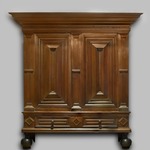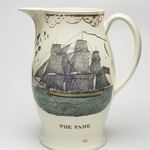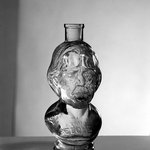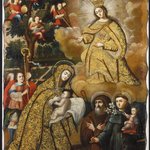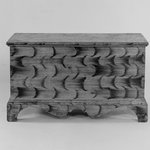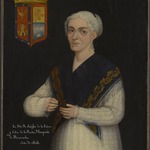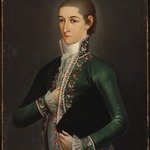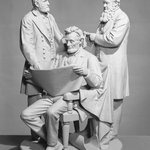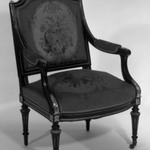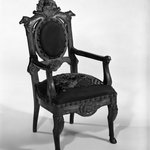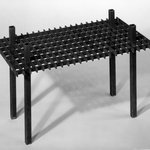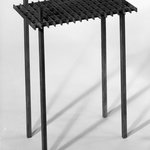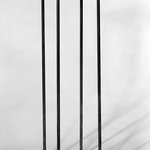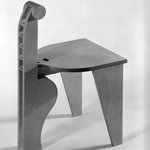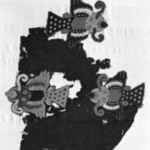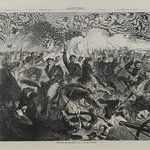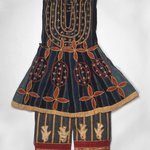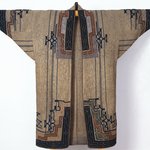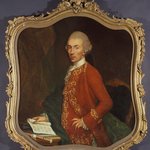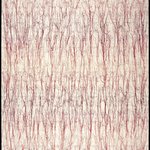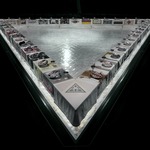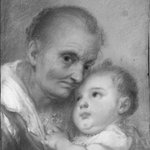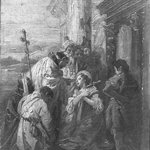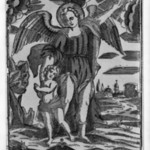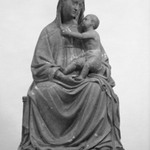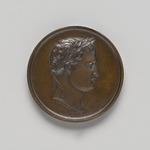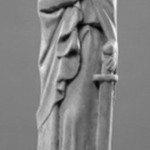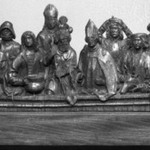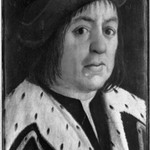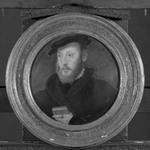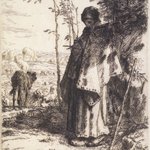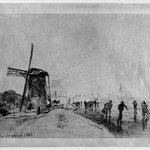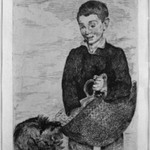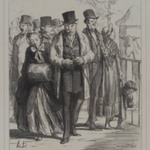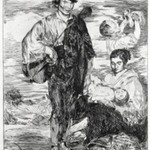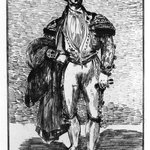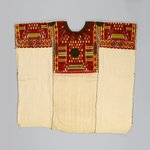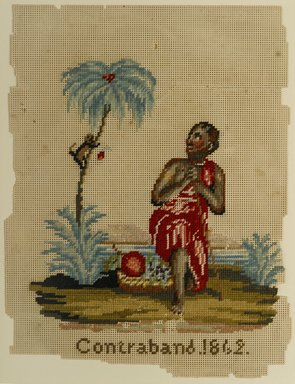
Embroidery "Contraband 1862"
Unknown
Decorative Arts and Design
On View: Luce Visible Storage and Study Center, 5th Floor
An abolitionist made this small, unfinished embroidery during the Civil War (1861–65), the year before the Emancipation Proclamation made slavery illegal in the rebellious Southern states. The composition is most likely derived from a political print of the era. At the outset of the Civil War, the North’s goal was not the abolition of slavery, but rather the preservation of the Union. It was a law in the North that runaway slaves, called “contraband,” were to be returned, although some Northern generals refused to do so. At first Lincoln himself wavered on this issue, but the fate of runaways became a political issue after the Union army occupied the Sea Islands off the coast of South Carolina in November 1861 and discovered ten thousand abandoned slaves. An outpouring of support for these abandoned slaves and other slaves who had escaped persuaded Lincoln to add emancipation as a goal of the Civil War and led directly to his Emancipation Proclamation of January 1, 1863.
ARTIST
Unknown
MEDIUM
Paper, wool
DATES
1862
DIMENSIONS
9 1/2 x 7 3/8 in. (24.1 x 18.7 cm)
Frame: 16 x 13 7/8 in. (40.6 x 35.2 cm) (show scale)



MARKINGS
Unmarked
SIGNATURE
Unsigned
COLLECTIONS
Decorative Arts and Design
ACCESSION NUMBER
L2006.5
CREDIT LINE
Lent anonymously in loving memory of Florence and Bernard Lewis
CATALOGUE DESCRIPTION
A partially finished embroidery on a paper support depicting a black female figure in a red costume kneeling in a landscape in supplication at the proper left, a palm tree with a monkey at proper right. Below is embroidered: "Contraband 1862."
MUSEUM LOCATION
This item is on view in Luce Visible Storage and Study Center, 5th Floor
CAPTION
Unknown. Embroidery "Contraband 1862," 1862. Paper, wool, 9 1/2 x 7 3/8 in. (24.1 x 18.7 cm). Lent anonymously in loving memory of Florence and Bernard Lewis, L2006.5. Creative Commons-BY (Photo: Brooklyn Museum, L2006.5_PS2.jpg)
IMAGE
overall, L2006.5_PS2.jpg. Brooklyn Museum photograph, 2008
"CUR" at the beginning of an image file name means that the image was created by a curatorial staff member. These study images may be digital point-and-shoot photographs, when we don\'t yet have high-quality studio photography, or they may be scans of older negatives, slides, or photographic prints, providing historical documentation of the object.
RIGHTS STATEMENT
Creative Commons-BY
You may download and use Brooklyn Museum images of this three-dimensional work in accordance with a Creative Commons license. Fair use, as understood under the United States Copyright Act, may also apply.
Please include caption information from this page and credit the Brooklyn Museum. If you need a high resolution file, please fill out our online application form (charges apply).
For further information about copyright, we recommend resources at the United States Library of Congress, Cornell University, Copyright and Cultural Institutions: Guidelines for U.S. Libraries, Archives, and Museums, and Copyright Watch.
For more information about the Museum's rights project, including how rights types are assigned, please see our blog posts on copyright.
If you have any information regarding this work and rights to it, please contact copyright@brooklynmuseum.org.
RECORD COMPLETENESS
Not every record you will find here is complete. More information is available for some works than for others, and some entries have been updated more recently. Records are frequently reviewed and revised, and we welcome any additional information you might have.
